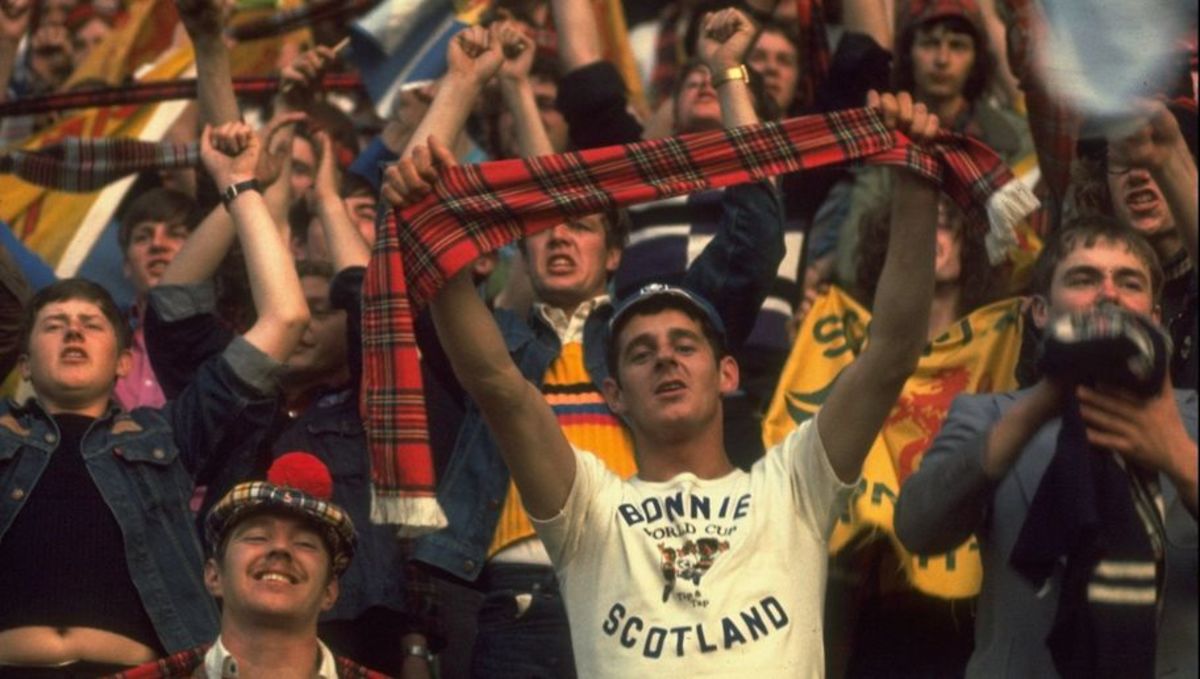World Cup Countdown: 10 Weeks to Go - The Scotland Side That Promised World Domination...

Confidence. We all wish for a little bit more flamboyance in our personalities, but you'd be hard pushed to find any more of the aforementioned traits in the character of Ally MacLeod.
MacLeod, Scotland's boss during the 1978 World Cup, did not lack belief in his own ability; not one bit. A few snippets from his time at Ayr United long before his stint with the Tartan Army fully emphasised his infectious confidence.
“We’ll win that, we’ll win that”, MacLeod said to every game that his eyes gazed upon, before halting having seen the fixture against Rangers.
“Well that’s two points in the bank,” MacLeod retorted. “Champions or not, they’ll not relish coming to the home of the undefeated league leaders.”
Presumptuous? Quite possibly. Optimistic? Very.
Anyways, enough about Ayr United. MacLeod's monumental confidence was now being thrust upon the international scene, with the Scotland national team the, um, lucky beneficiaries of his disillusion.
In fairness to MacLeod, he and his star studded Scotland side manoeuvred their way through a tricky qualification stage including the European champions Czechoslovakia - their success made all the more sweeter given England's failure to qualify.
To build on the aforementioned point on the Scots' having a star studded side, the likes of Graeme Souness, Kenny Daglish, Alan Hansen, Joe Jordan and Archie Gemmill graced the Tartan Army with their talents. Arguably the greatest team in Scotland's footballing history, MacLeod was right to feel confident with that sort of ability at his disposal.
The Scots' belief in their chances of World Cup glory were not just internal. Respected coaches Rinus Michels and Miljan Miljanić stated their opinion that Scotland were amongst the favourites to win the tournament, while the Royal Mail commissioned designs for a commemorative stamp to be circulated if the Tartan Army were victorious.
Before they jetted off to Argentina to put their money where their mouth was, the Scotland team were given a passionate send off by 25,000 inside Hampden Park; it was now down to MacLeod and the players to make a nation's dream into a reality.
Perhaps rather symbolically, the bus taking them from the airport to the hotel broke down in a eerie case of foreshadowing. If that wasn't enough to make people question the Scots' chances, their first game was a much more damning indicator.
Peru posed the first test for MacLeod and his side. In a game that the former Ayr United boss did little research on - he singled out Juan Carlos Oblitas, Peru's left winger, as no threat to his left back Martin Buchan... despite them playing on opposite sides of the pitch. Scotland lost 3-1.
Rattled, Scotland now had to face Iran in what seemed an easy enough game in which to get back on track. MacLeod would have to be without Willie Johnston after he failed a drugs test as a result of a cold cure, supposedly containing a prohibited substance, but even so, Scotland were heavily backed to beat the Iranians.
A disappointing 1-1 draw followed, and in a desperate attempt to retain his and his team's credibility, MacLeod blamed their poor form on the fact that the hotel swimming pool had no water in it; meaning his star studded had nowhere to chill out and take their minds off the football. Okay Ally, sure...
In real do or die fashion, these underwhelming results mean that the Tartan Army had to beat the Dutch by three clear goals to progress to the next round. Now, it could be argued that MacLeod's overconfident management style and it's impact on the players had been brushed under the carpet.
These players had the weight of a nation's expectations on their shoulders anyway, but their manager's comments meant that the pressure could easily have been intensified to levels that significantly affected their performance.
While that may seem hypothetical, it had some substance to it judging by the way Scotland performed against the Netherlands. With the pressure now off unless a miracle ensued against a quality Dutch outfit, MacLeod's men played with a swashbuckling flamboyancy, resulting in an exquisite victory in which Gemmill scored one of the World Cup's greatest ever goals.
Although impressive in victory, it wasn't enough. Scotland won the game by three goals to Holland's two, sending them back home with their tails tucked between their legs as a disappointed nation awaited them.
In place of the delirium and ecstasy that he had expected upon returning from Argentina, MacLeod was instead received by just a handful of angered Scots who had fallen heavily under his spell of disillusion. The remainder of the country too busy to vent as they came to terms with deception they had fallen victim to.
His reputation had been smeared. Not by his failure to take his side further in the tournament as such, but in the way that he had brainwashed all into believing that Scotland would walk the World Cup with their eyes closed.
The Scottish FA stood by their man due to the sheer traction he had drawn to the national team, but he lasted just one more game before resigning in 1978, his once marauding self belief now shattered leaving a shell of a man.
‘With a bit of luck in the World Cup I might have been knighted. Now I’ll probably be beheaded,' said MacLeod, and it was with this statement that he truly summed up the foundations of his hollow overconfidence.
Luck. MacLeod was a chancer, a chancer who convinced a nation of the improbable becoming probable; maybe a career in politics would've suited him better...





